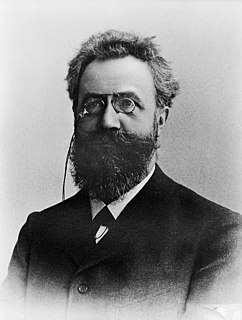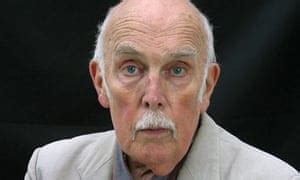A Quote by Sheldon Richman
Among other grand achievements, F. A. Hayek had a remarkable career pointing out the flaws in collectivism. One of his keenest insights was that, paradoxically, any collectivist system necessarily depends on one individual (or small group) to make key social and economic decisions. In contrast, a system based on individualism takes advantage of the aggregate, or 'collective,' information of the whole society; through his actions each participant contributes his own particular, if incomplete, knowledge-information that could never be tapped by the individual at the head of a collectivist state.
Quote Topics
Achievements
Actions
Advantage
Aggregate
Among
Any
Based
Career
Collective
Collectivism
Contrast
Could
Decisions
Depends
Each
Economic
Flaws
Grand
Group
Had
Hayek
Head
His
Incomplete
Individual
Individualism
Information
Insights
Key
Knowledge
Make
Necessarily
Never
Other
Out
Own
Participant
Particular
Pointing
Remarkable
Small
Small Group
Social
Society
State
System
Takes
Through
Whole
Related Quotes
Individualism regards man - every man - as an independent, sovereign entity who possesses an inalienable right to his own life, a right derived from his nature as a rational being. Individualism holds that a civilized society, or any form of association, cooperation or peaceful co-existence among men, can be achieved only on the basis of the recognition of individual rights - and that a group, as such, has no rights other than the individual rights of its members.
Collectivism takes on many guises and seldom uses its own real name. Words like 'community' and 'social' soothe us into thinking that collectivist decision-making is somehow higher and nobler than individual or 'selfish' decision-making. But the cold fact is that communities do not make decisions. Individuals who claim to speak for the community impose their decisions on us all.
We are in the society of the teacher-judge, the doctor-judge, the educator-judge, the 'social-worker'-judge; it is on them that the universal reign of the normative is based; and each individual, wherever he may find himself, subjects to it his body, his gestures, his behavior, his aptitudes, his achievements.
Collectivism holds that the individual has no rights, that his life and work belong to the group (to "society," to the tribe, the state, the nation) and that the group may sacrifice him at its own whim to its own interests. The only way to implement a doctrine of that kind is by means of brute force - and statism has always been the poltical corollary of collectivism.
Every individual is continually exerting himself to find out the most advantageous employment for whatever capital he can command. It is his own advantage, indeed, and not that of the society which he has in view. But the study of his own advantage naturally, or rather necessarily, leads him to prefer that employment which is most advantageous to society... He intends only his own gain, and he is in this, as in many other cases, led by an invisible hand to promote an end which was not part of his intention
Any group or "collective," large or small, is only a number of individuals. A group can have no rights other than the rights of its individual members. In a free society, the "rights" of any group are derived from the rights of its members through their voluntary individual choice and contractual agreement, and are merely the application of these individual rights to a specific undertaking... A group, as such, has no rights.
In the Small group the individual can know the effects of his actions on his several fellows, and the rules may effectively forbid him to harm them in any manner and even require him to assist them in specific ways. In the Great Society many of the effects of a person's actions on various fellows must be unknown to him. It can, therefore, not be the specific effects in the particular case, but only rules which define kinds of actions prohibited or required, which must serve as guides to the individual.
Individual versus group selection results in a mix of altruism and selfishness, of virtue and sin, among the members of a society. If one colony member devotes its life to service over marriage, the individual is of benefit to the society, even though it does not have personal offspring. A soldier going into battle will benefit his country, but he runs a higher risk of death than one who does not. An altruist benefits the group, but a layabout or coward who saves his own energy and reduces his bodily risk passes the resulting social cost to others.
Rational behavior ... depends upon a ceaseless flow of data from the environment. It depends upon the power of the individual to predict, with at least a fair success, the outcome of his own actions. To do this, he must be able to predict how the environment will respond to his acts. Sanity, itself, thus hinges on man's ability to predict his immediate, personal future on the basis of information fed him by the environment.
Smith, as we have said, was not the proponent of any one class. He was a slave to his system. His whole economic philosophy stemmed from his unquestioning faith in the ability of the market to guide the system to its point of highest return. The market — that wonderful social machine — would take care of society's needs if it was left alone. "Consumption is the sole end and purpose of all production," he wrote.
When we look at the astonishing material achievements of the West. we see these things as the result, not of compulsion or government action or the superior wisdom of a few, but of that system of competition and free enterprise, rewarding success and penalising failure, which enables every individual to participate by his private decisions in shaping the future of his society.
If, of course, one builds into the concept of an 'individual' all that Professor Hayek does in his Road To Serfdom, Individualism and Economic Order and many other works, which is, to put it briefly, the whole of laisser-faire economic theory, then plainly man as such a programmed predator has very little interest in being fraternal, or very little chance.
Since the social victim has been oppressed by society, he comes to feel that his individual life will be improved more by changes in society than by his own initiative. Without realizing it, he makes society rather than himself the agent of change. The power he finds in his victimization may lead him to collective action against society, but it also encourages passivity within the sphere of his personal life.


































